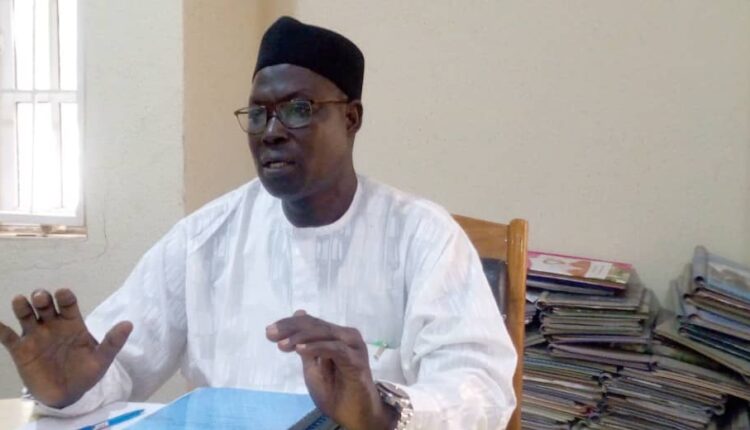Bauchi pays N150m World Bank counterpart funds to boost adolescent, girl child education
|
Getting your Trinity Audio player ready...
|
Permanent Secretary, Ministry of Education, Dr. Sule Madara
By Akanji Alowoludo, Bauchi
Bauchi State Government has paid the sum of N150million as counterparts funding in its demonstration and commitment to the improvement of the Girl-child education and empowerment in the state.
The Government also unveiled the World Bank Adolescent Girls Initiative for Learning and Empowerment, (AGILE) Project in the State.
The disclosure and unveiling was made by the Project Coordinator of AGILE, Hajiya Jamila Dahiru, during a News briefing on the new project held in the Project Office on Friday.
She said that, “The AGILE Project is a World Bank assisted initiative of the Federal Government aimed at improving secondary education and empowerment opportunities for adolescent girls in the State.”
According to her, “The initiative is one of the first far-reaching and comprehensive multi-sectoral interventions to empower girls to access and complete secondary school education.”
The Project Coordinator represented by the Permanent Secretary, Ministry of Education, Dr Sule Madara said that the project would benefit adolescent girls, vulnerable families, across the 20 local government areas in the state.
According to her, through the AGILE program, the Government aims to address the multiple constraints that girls face through a variety of multisectoral interventions.
Jamila Dahiru added that, “They include the construction and rehabilitation of schools, improved safety conditions in and around schools, communication campaigns to shift social norms, safe spaces to deliver life skills, health and nutrition information.”
She further said that, “Including reproductive and menstrual hygiene, delivery of digital skills training, cash transfers to incentivize households to send girls to school, and other measures to strengthen education systems.”
The AGILE PC noted that adolescent girls face many constraints in accessing and completing secondary education stressing that, “Poor condition of infrastructure and a lack of water sanitation and hygiene (WASH) facilities makes it difficult for girls to stay in school.”
Also noted is significant poor households, which makes it very challenging for them to cover the direct and indirect costs of schooling.
“All these factors have contributed towards limiting the number of girls that have access to secondary school,” she said.
The Project Coordinator however said that the state is among the 11 States selected in the country to benefit from the World Bank AGILE project to boost adolescent girls’ education.


